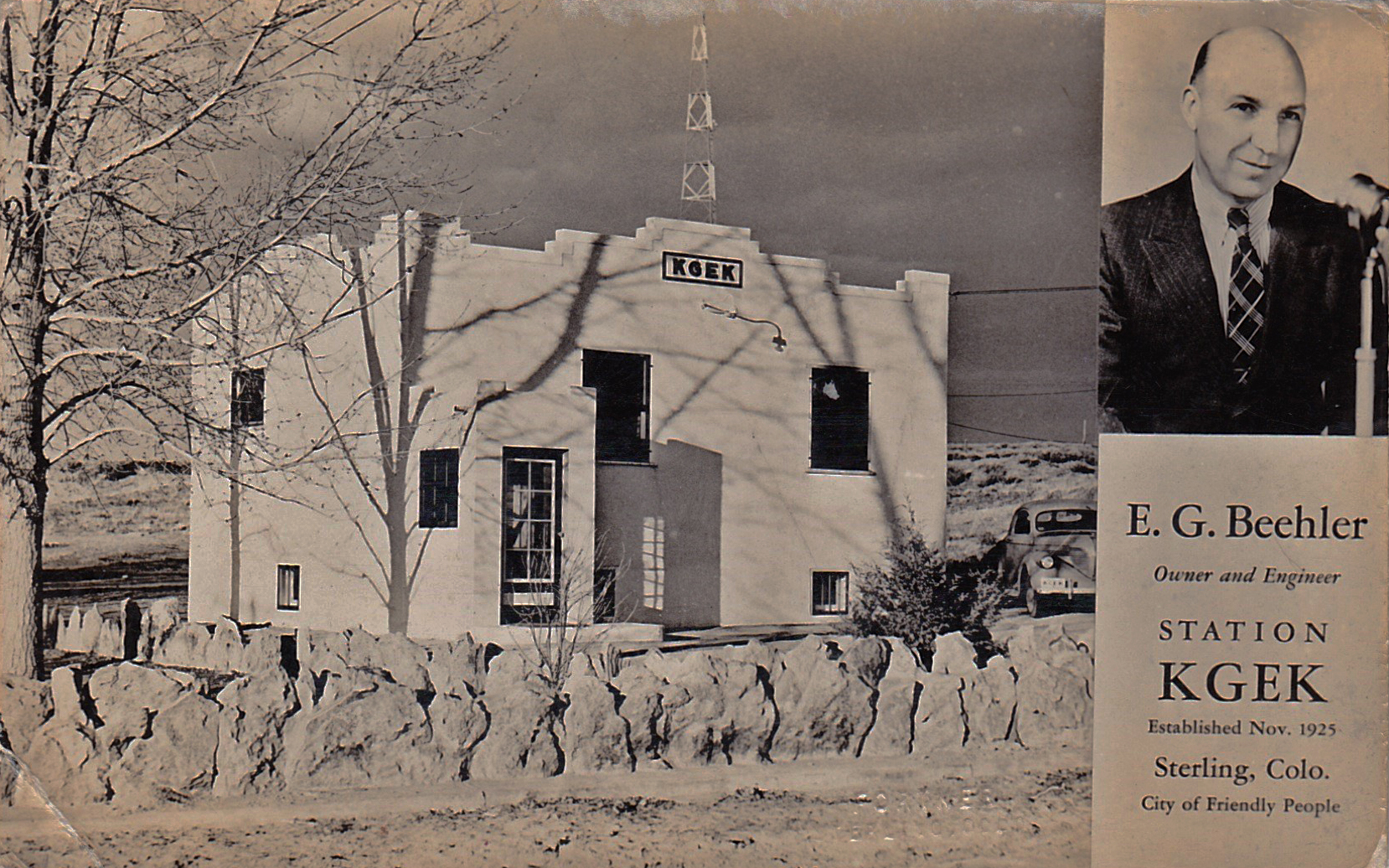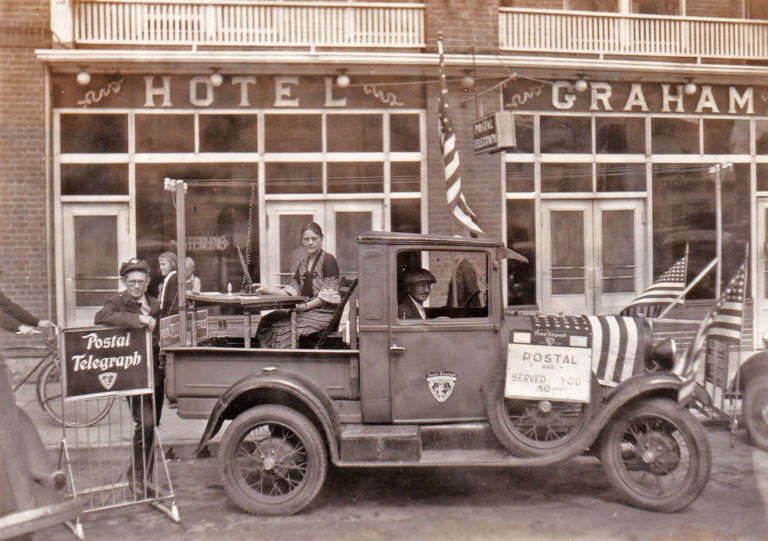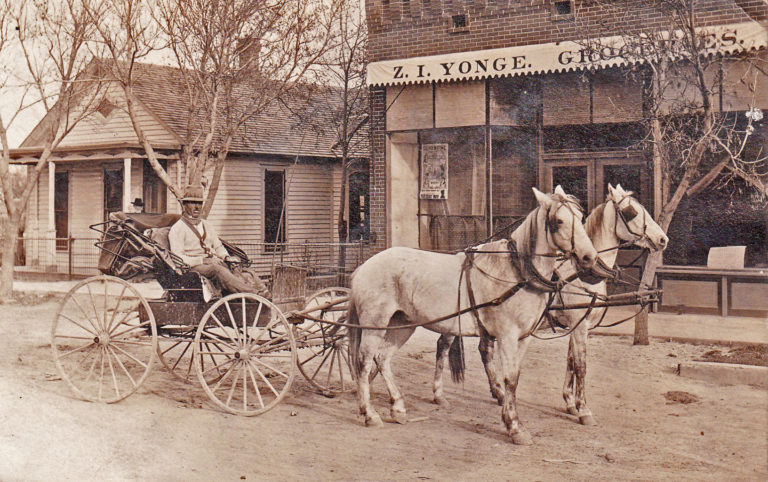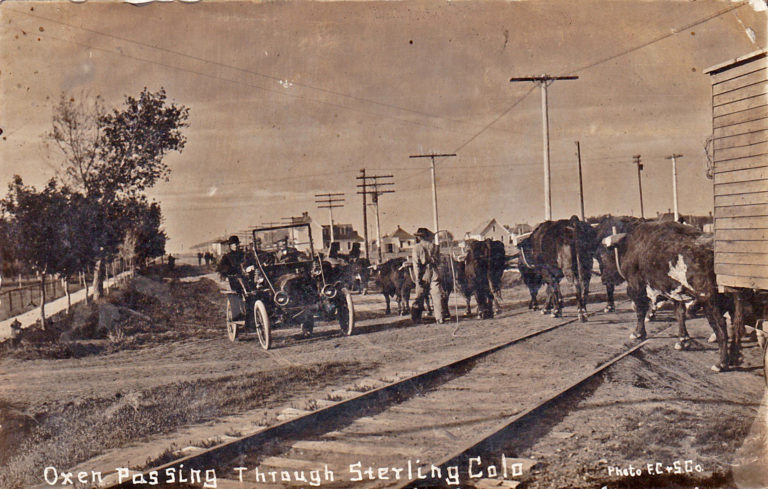Elmer George Beehler, a Valentine’s baby born in Greeley in 1892, was a talented, productive maker and fixer of things mechanical and electrical. After completing the eighth grade, he joined his father to work the family farm at Wood River, Nebraska. At age 16 he had a #7 Remington typewriter and grew tired of its inability to perform what is now known as a back space function. So he invented the back space key, which was first used by the Underwood Typewriter Company. In compensation for his patent rights, he received $25 and a new typewriter. Later he invented other things as well, including the Beehler Test Unit, for testing all makes and types of automobile generators and starters, and the Beehler Undercutter, to remove mica insulation on electrical armatures, thus reducing wear.
Elmer moved to Yuma, Colorado, as a young adult and got work as an automotive technician. By 1921, he had started his own electrical equipment company, the Beehler Electrical Equipment Company (BEECO). In that same year, having built his own transmitting equipment, he began radio broadcasting under “The Wireless Company of Yuma.” He was known for his “tell it like it is” style of broadcasting. As this was the first radio station in the area, he found himself selling radios, through BEECO, to people who wanted to listen to his station.
In 1925, BEECO was granted a commercial license to operate KGEK in Yuma. KGEK would be the third oldest radio station in Colorado. Initially, at 50 watts, his broadcasts nearly covered the town. Early on, Elmer aired programs for three hours a day, and two hours two nights a week. As the years passed, he increased programming air time and quality, along with increased transmitting power. Elmer broadcast agricultural market information, but also gave air time to political candidates, churches, including the broadcasting of live church services, and musical performances. One musical performance reported was that of the Jolly Harmonica Band, made up of grade school students and directed by Miss Pearl Miller, in the spring of 1930.
In 1934, Beehler moved the station to Sterling. The most likely reason for this was the larger radio market there.
In 1966 at age74, Elmer sold KGEK and retired. For a couple of years after that, he helped the new owners with the technical end of the business, but eventually decided he’d rather play cards with his wife at the senior center and putter around the house. The latter, of course, including fixing things that had broken.
After 1978, the KGEK call letters were changed to KSTC, which is still operating at 1230 on the AM dial.
Elmer was married twice. He married fellow Coloradan Ella Marie Tibbett in Denver in June of 1919, and their union produced three daughters and a son. Ella was taken quickly by influenza in May of 1927. In July of 1929, he married Nebraska native and Yuma resident Mary Essig Sylvius.
Elmer lost Mary in 1980, following 50 years of marriage, and Elmer died in 1985 at age 93. They are both buried at the Riverside Cemetery in Sterling. A couple of months after Elmer’s death, Charles Kuralt of the “CBS News Sunday Morning” television show paid tribute to him.
REFERENCES:
- Colorado County Marriage Records and State Index, 1862-2006 (www.ancestry.com)
- Find a Grave at https://www.findagrave.com/memorial/40210691/elmer-george-beehler
- Hannah Michelle Final Family Tree (www.ancestry)
- Obituary (undated) in Bird Family Tree (www.ancestry.com)
- “Old Photos of Yuma” at https://www.cogenweb.com/yuma/photos/places/yuma/BEECO.htm and www.cogenweb.com/yuma/photos/places/yuma/KGEK.htm
- Wray Gazette, dated May 1, 1930, at www.coloradohistoricnewspapers.org
- Wray Rattler, December 20, 1928, October 6, 1932, and December 20, 1934, at
www.coloradohistoricnewspapers.org
- 1930 Census (www.ancestry.com)





Somebody had to invent the backspace key! Too bad he couldn’t collect royalties but the onslaught of paperwork for the customer would be prohibitive.
Somebody had to invent the backspace key! Too bad he couldn’t collect royalties but the onslaught of paperwork for the customer would be prohibitive.
?